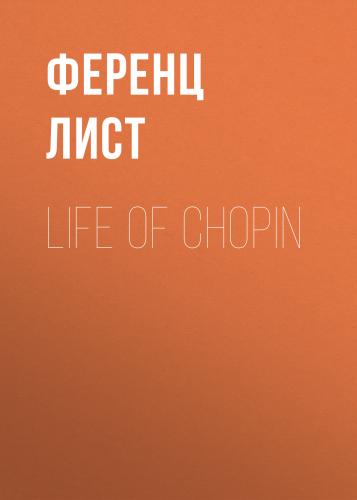All the poetry contained in the Polonaises had, like a rich sap, been so fully expressed from them by the genius of Weber, they had been handled with a mastery so absolute, that it was, indeed, a dangerous and difficult thing to attempt them, with the slightest hope of producing the same effect. He has, however, been surpassed in this species of composition by Chopin, not only in the number and variety of works in this style, but also in the more touching character of the handling, and the new and varied processes of harmony. Both in construction and spirit, Chopin's Polonaise In A, with the one in A flat major, resembles very much the one of Weber's in E Major. In others he relinquished this broad style: Shall we say always with a more decided success? In such a question, decision were a thorny thing. Who shall restrict the rights of a poet over the various phases of his subject? Even in the midst of joy, may he not be permitted to be gloomy and oppressed? After having chanted the splendor of glory, may he not sing of grief? After having rejoiced with the victorious, may he not mourn with the vanquished? We may, without any fear of contradiction, assert, that it is not one of the least merits of Chopin, that he has, consecutively, embraced ALL the phases of which the theme is susceptible, that he has succeeded in eliciting from it all its brilliancy, in awakening from it all its sadness. The variety of the moods of feeling to which he was himself subject, aided him in the reproduction and comprehension of such a multiplicity of views. It would be impossible to follow the varied transformations occurring in these compositions, with their pervading melancholy, without admiring the fecundity of his creative force, even when not fully sustained by the higher powers of his inspiration. He did not always confine himself to the consideration of the pictures presented to him by his imagination and memory, taken en masse, or as a united whole. More than once, while contemplating the brilliant groups and throngs flowing on before him, has he yielded to the strange charm of some isolated figure, arresting it in its course by the magic of his gaze, and, suffering the gay crowds to pass on, he has given himself up with delight to the divination of its mystic revelations, while he continued to weave his incantations and spells only for the entranced Sibyl of his song.
His GRAND POLONAISE in F SHARP MINOR, must be ranked among his most energetic compositions. He has inserted in it a MAZOURKA. Had he not frightened the frivolous world of fashionable life, by the gloomy grotesqueness with which he introduced it in an incantation so fantastic, this mode might have become an ingenious caprice for the ball-room. It is a most original production, exciting us like the recital of some broken dream, made, after a night of restlessness, by the first dull, gray, cold, leaden rays of a winter's sunrise. It is a dream-poem, in which the impressions and objects succeed each other with startling incoherency and with the wildest transitions, reminding us of what Byron says in his "DREAM:"
Конец ознакомительного фрагмента.
Текст предоставлен ООО «ЛитРес».
Прочитайте эту книгу целиком, купив полную легальную версию на ЛитРес.
Безопасно оплатить книгу можно банковской картой Visa, MasterCard, Maestro, со счета мобильного телефона, с платежного терминала, в салоне МТС или Связной, через PayPal, WebMoney, Яндекс.Деньги, QIWI Кошелек, бонусными картами или другим удобным Вам способом.
